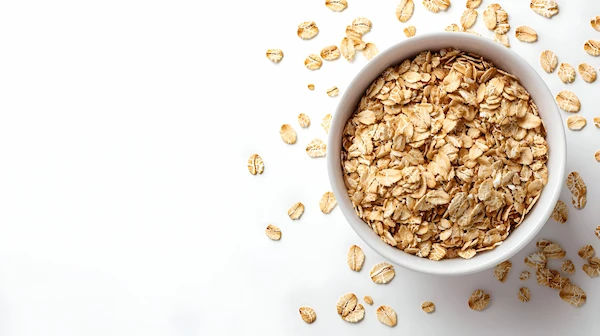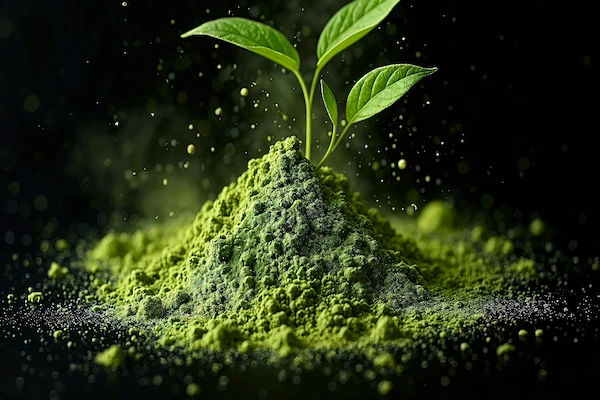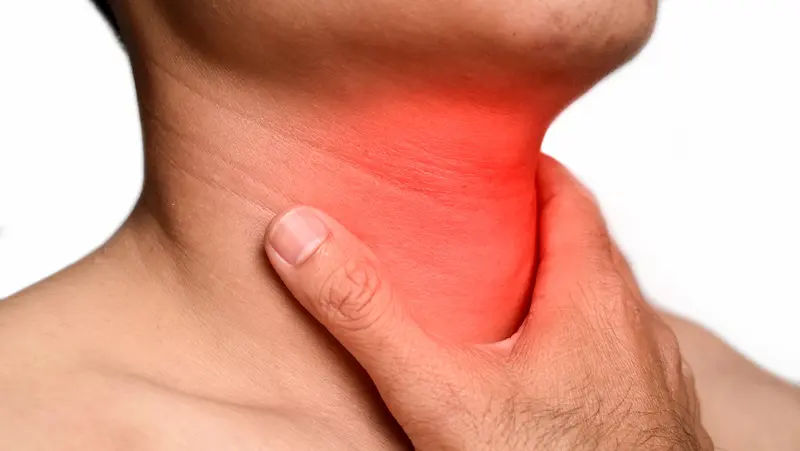Jal Neti Benefits, Steps, and Precautions for Nasal Cleansing
Discover jal neti benefits and safe yoga nasal cleansing: step-by-step guide, water safety, frequency, and precautions from trusted medical sources.

Written by Dr. M L Ezhilarasan
Reviewed by Dr. Rohinipriyanka Pondugula MBBS
Last updated on 13th Jan, 2026

Introduction
Blocked noses, sinus pressure, and allergy symptoms can affect your focus and energy at work, school, or home. Jal Neti—also known as yoga nasal cleansing—is a gentle saline rinse that washes the nasal passages. Rooted in traditional yogic practice and aligned with modern nasal irrigation methods, it offers a natural way to relieve congestion and improve breathing. This guide explains what Jal Neti is, how to perform it safely, who might benefit, and essential precautions supported by credible health sources.
What Is Jal Neti?
Jal Neti is a simple nasal rinse using sterile, lukewarm salt water. Traditionally performed with a small teapot-like device called a neti pot, it can also be done using a squeeze bottle or bulb syringe designed for nasal irrigation. In modern medicine, this is referred to as nasal saline irrigation or nasal rinsing. The aim is to thin and remove mucus, flush out allergens and irritants, and help the nose’s natural cleaning mechanisms function effectively.
How Nasal Irrigation Works?
Nasal irrigation works in the following ways:
- Moisturises the nasal passages that become dry or irritated.
- Thins and washes away mucus, allergens (like pollen), and pollutants.
- Supports cilia, the tiny hairs that move mucus out of the sinuses.
- May reduce nasal swelling, improving overall airflow.
Consult a Top General Practitioner for Personalised Advice
Jal Neti Benefits (What Research Suggests)
Research and clinical experience suggest that regular nasal saline irrigation can:
- Ease nasal congestion and sinus pressure caused by colds, infections, or allergies.
- Improve symptoms of chronic rhinosinusitis (long-term sinus inflammation) and allergic rhinitis.
- Flush out allergens after outdoor exposure, reducing sneezing and a runny nose.
- Lessen postnasal drip and throat irritation.
- Reduce reliance on some symptom-relief medications for certain individuals.
Note: Jal Neti relieves symptoms but does not cure infections. If you have severe or ongoing symptoms, fever, facial pain, or swelling, seek medical advice.
Who Might Benefit—and Who Should Consult a Clinician First
You Might Benefit If You Have:
- Seasonal or perennial allergies.
- Colds or upper respiratory infections with thick mucus.
- Sinus congestion or facial pressure.
- Dry nasal passages from indoor heating or dry air.
Speak to a Clinician Before Starting If You:
- Have recently undergone nasal, sinus, or ear surgery.
- Have a completely blocked nose or severe facial pain.
- Experience frequent nosebleeds or have a bleeding disorder.
- Have an ear infection or chronic ear problems.
- Plan to use nasal irrigation for a child (consult a paediatric clinician).
- Are immunocompromised or have a weakened immune system.
How to Practise Jal Neti Safely?
Water safety is the most critical aspect of this practice. Rare but serious infections have been linked to contaminated tap water. Always follow these steps carefully.
Step 1: Choose Safe Water
Use only one of the following water sources:
- Distilled or sterile water (labelled as such).
- Previously boiled and cooled water: Boil tap water for at least 1 minute (or 3 minutes above 2,000 metres elevation) and let it cool until lukewarm.
- Filtered water: Use a filter certified to remove microorganisms (look for “NSF/ANSI Standard 53 or 58” or “absolute pore size ≤1 micron”).
Never use untreated tap water for nasal irrigation.
Step 2: Prepare a Comfortable Saline Solution
- Option A: Use pre-measured saline packets provided with your device.
- Option B: Make your own isotonic saline by mixing ½ teaspoon of non-iodised salt in 240 mL (8 oz) of sterile, lukewarm water. Add a small pinch of baking soda to reduce stinging.
If it burns, adjust salt levels slightly, increase the baking soda, or switch to ready-made packets.
Step 3: Set Up Your Device
- Wash your hands thoroughly.
- Use a clean neti pot, squeeze bottle, or bulb syringe.
- Fill with the prepared saline solution at a lukewarm temperature.
Step 4: Position and Pour
- Lean over a sink, keeping your mouth slightly open and breathing through it.
- Tilt your head roughly 45 degrees, keeping one nostril higher.
- Gently insert the spout into the upper nostril and pour or squeeze slowly.
- Allow the saline to flow through and exit the lower nostril.
- Switch sides and repeat.
Step 5: Finish and Clean Up
- Blow your nose gently without sealing both nostrils completely.
- Wash your device with warm, soapy water, rinse with safe water, and let it air-dry completely.
- Some devices are dishwasher-safe—check manufacturer guidelines.
- Never share your neti pot or bottle with others.
How Often Should You Do Jal Neti?
The frequency of jal neti includes:
- During flare-ups: Once daily is typical, or up to twice daily for short periods if advised.
- For maintenance, A few times weekly or as needed is sufficient.
- Long-term use: Safe for many adults when sterile water and proper hygiene are used.
If irritation, dryness, or nosebleeds occur, reduce frequency and seek medical advice.
Yoga Nasal Cleansing vs Medical Nasal Irrigation
While Jal Neti originates from yogic traditions, modern medicine recognises nasal irrigation as a safe and effective method for nasal hygiene. Both share the same foundation—using gentle, sterile, lukewarm saline to cleanse nasal passages. Whether viewed as a holistic or clinical practice, both approaches support clear breathing and sinus comfort.
Common Mistakes to Avoid
Common mistakes to avoid include:
- Using unboiled tap water.
- Using cold or very hot water—lukewarm is ideal.
- Using too much or too little salt—adjust or use pre-measured packets if unsure.
- Applying excessive pressure with squeeze bottles—gentle flow works best.
- Neglecting device cleaning—always clean and air-dry after each use.
- Irrigating when nostrils are fully blocked—use a gentle saline spray first or wait until swelling subsides.
Possible Side Effects and When to Stop
The possible side effects include:
Mild, Temporary Effects:
- Slight burning or stinging sensation.
- Mild ear fullness or popping.
- Saline dripping after use.
- Occasional minor nosebleeds, particularly in dry conditions.
Stop and Seek Medical Advice If You Experience:
- Frequent or heavy nosebleeds.
- Persistent ear pain, severe headache, or facial swelling.
- Worsening symptoms, fever, or signs of infection.
- Uncertainty about your technique or ongoing discomfort.
Practical Tips for Comfort and Success
The practical tips for comfort and success include:
- Perform the rinse over a sink or in the shower.
- Keep tissues or a towel nearby.
- Start with the more open nostril first.
- Avoid lying flat for several minutes afterwards to prevent dripping.
- During allergy season, rinse after outdoor exposure to remove pollen and dust.
Conclusion
Jal Neti beautifully bridges ancient yogic wisdom with modern scientific practice. When performed correctly, it offers natural relief from nasal congestion, allergies, and sinus discomfort while supporting clearer breathing and overall respiratory health. The key lies in safety—using sterile water, proper salt concentration, and regular cleaning. Consistency and mindfulness make this simple technique a safe and effective part of your self-care routine. With proper guidance and care, Jal Neti can become a refreshing daily ritual that supports calm, clarity, and well-being.
Consult a Top General Practitioner for Personalised Advice
Consult a Top General Practitioner for Personalised Advice

Dr. Rajib Ghose
General Physician/ Internal Medicine Specialist
25 Years • MBBS
East Midnapore
VIVEKANANDA SEBA SADAN, East Midnapore

Dr. S A Mallick
General Physician/ Internal Medicine Specialist
25 Years • MBBS , MD
Kolkata
Dr. S A Mallick's Chamber, Kolkata
(25+ Patients)

Dr. Ashita Kuruvilla
General Physician/ Internal Medicine Specialist
7 Years • MBBS
East Midnapore
VIVEKANANDA SEBA SADAN, East Midnapore

Dr. Moumita Roy
General Physician/ Internal Medicine Specialist
8 Years • MBBS , MD (Anesthesiology)
Kolkata
VDC Clinic, Kolkata

Dr S Lakshmi Narasimha Reddy
General Practitioner
9 Years • MBBS
Kondapur
Singam's Kids Clinic, Kondapur
Consult a Top General Practitioner for Personalised Advice

Dr. Rajib Ghose
General Physician/ Internal Medicine Specialist
25 Years • MBBS
East Midnapore
VIVEKANANDA SEBA SADAN, East Midnapore

Dr. S A Mallick
General Physician/ Internal Medicine Specialist
25 Years • MBBS , MD
Kolkata
Dr. S A Mallick's Chamber, Kolkata
(25+ Patients)

Dr. Ashita Kuruvilla
General Physician/ Internal Medicine Specialist
7 Years • MBBS
East Midnapore
VIVEKANANDA SEBA SADAN, East Midnapore

Dr. Moumita Roy
General Physician/ Internal Medicine Specialist
8 Years • MBBS , MD (Anesthesiology)
Kolkata
VDC Clinic, Kolkata

Dr S Lakshmi Narasimha Reddy
General Practitioner
9 Years • MBBS
Kondapur
Singam's Kids Clinic, Kondapur
More articles from General Medical Consultation
Frequently Asked Questions
Q1: Is Jal Neti safe?
A.Yes, when done correctly using sterile or properly boiled/filtered water and a clean device. Serious infections are extremely rare and linked to contaminated tap water, so water safety is essential.
Q2: Can I use tap water if it’s safe to drink?
A.No. Even potable tap water may contain microorganisms that are safe to ingest but unsafe for nasal use. Always use distilled, sterile, boiled-and-cooled, or properly filtered water.
Q3: What salt should I use?
A.Choose non-iodised, additive-free salt (such as pure or pickling salt), or use pre-measured saline packets. Adding a pinch of baking soda helps reduce stinging.
Q4: How soon will I feel Jal Neti benefits?
Many users notice relief immediately, with easier breathing and reduced stuffiness. For chronic conditions, regular use over several days or weeks may offer steady improvement. Consult a clinician if symptoms persist.
Q5: Can children or pregnant individuals practise Jal Neti?
Saline irrigation is generally safe during pregnancy and can help ease congestion. For children, consult a paediatric clinician, use age-appropriate devices, and supervise closely. Follow strict water safety and cleaning rules.




